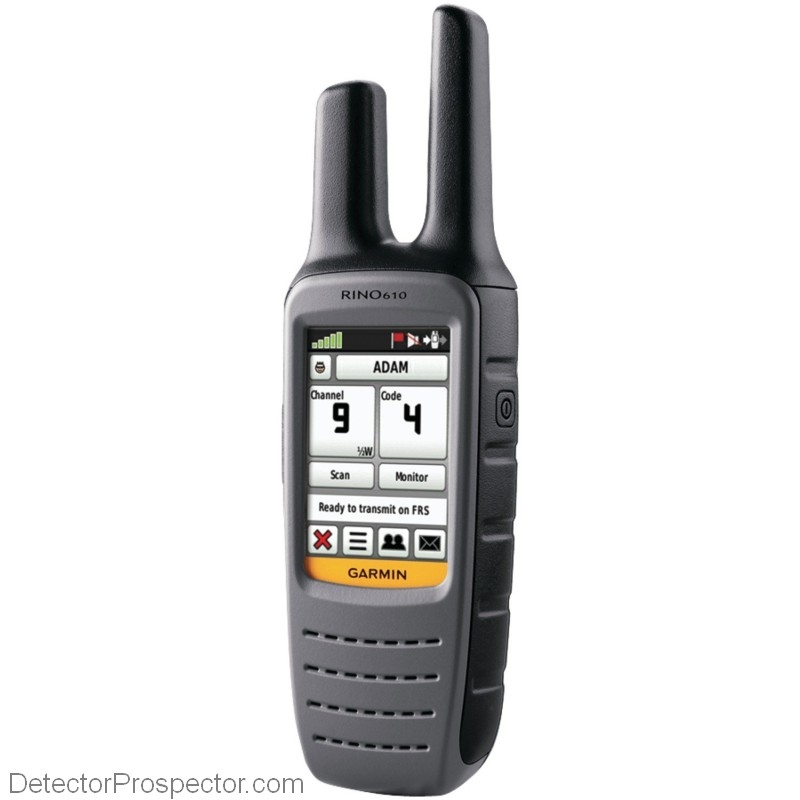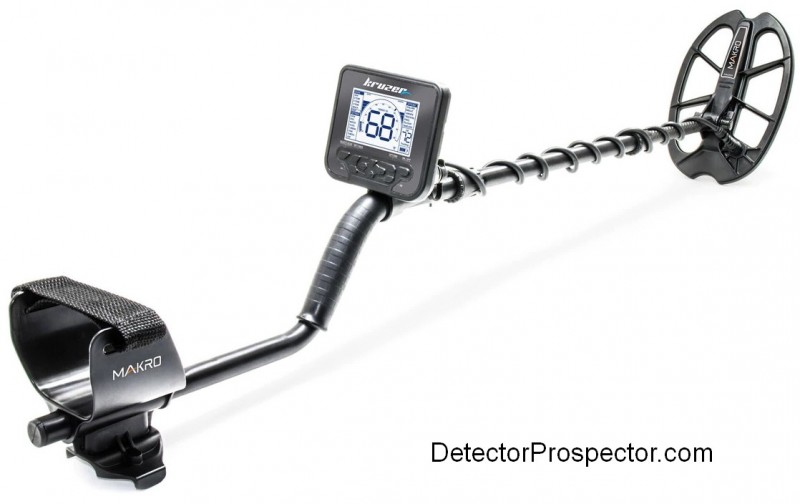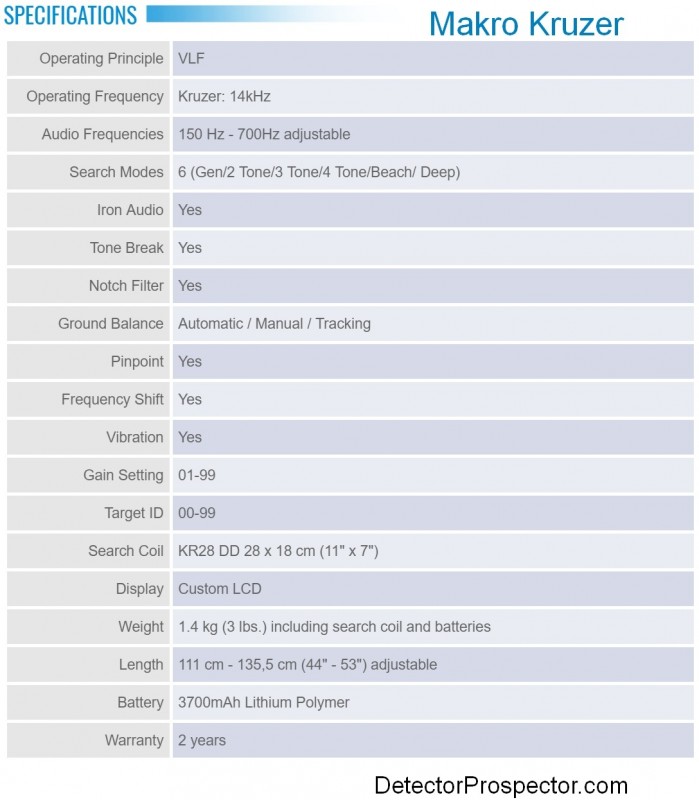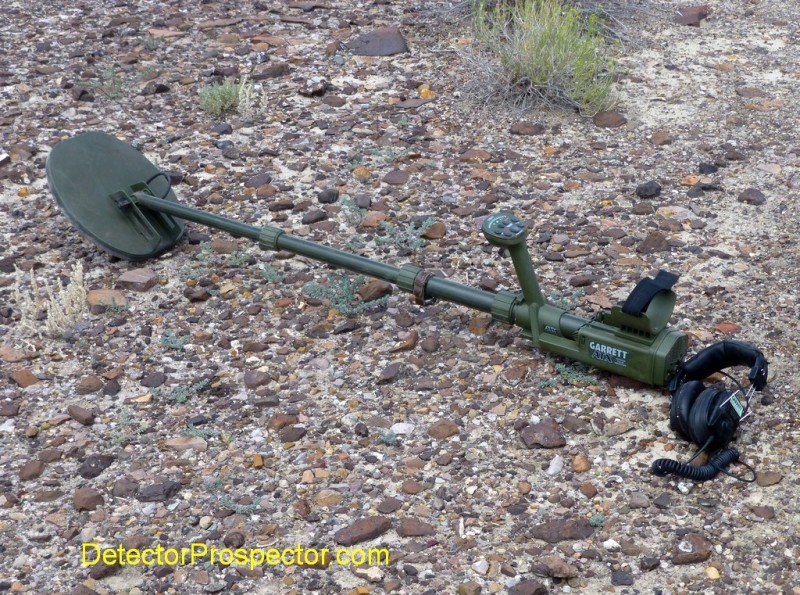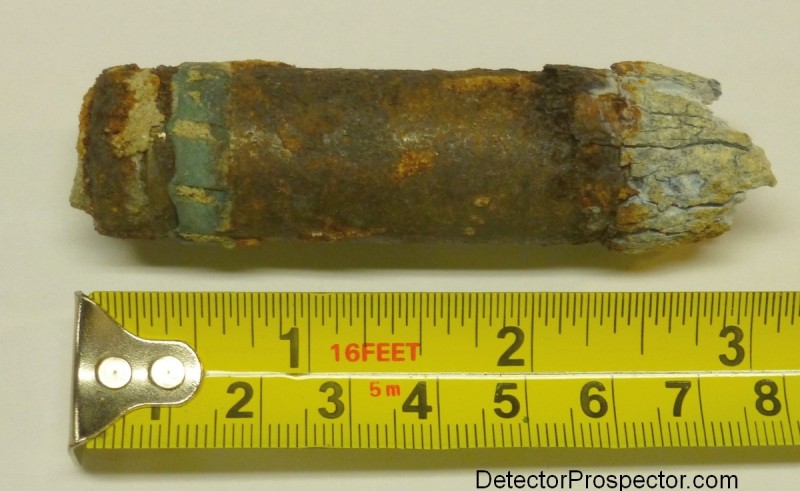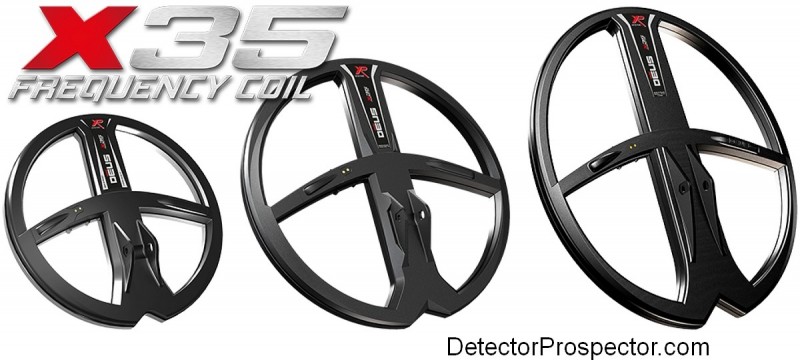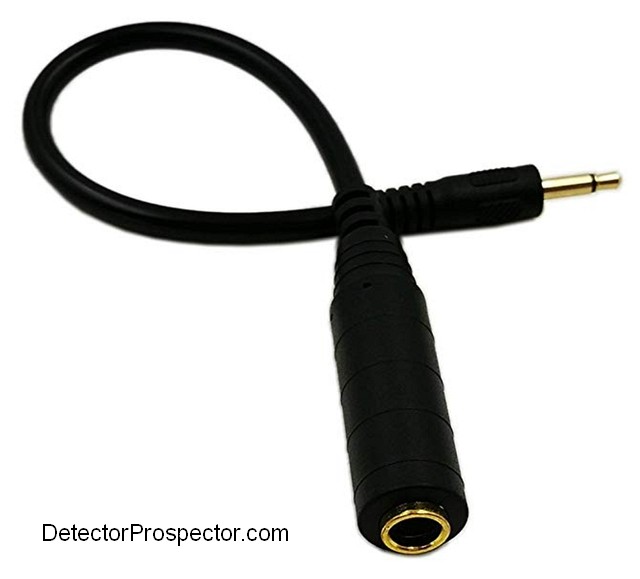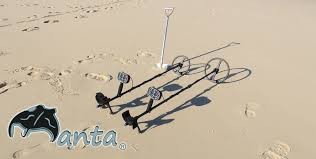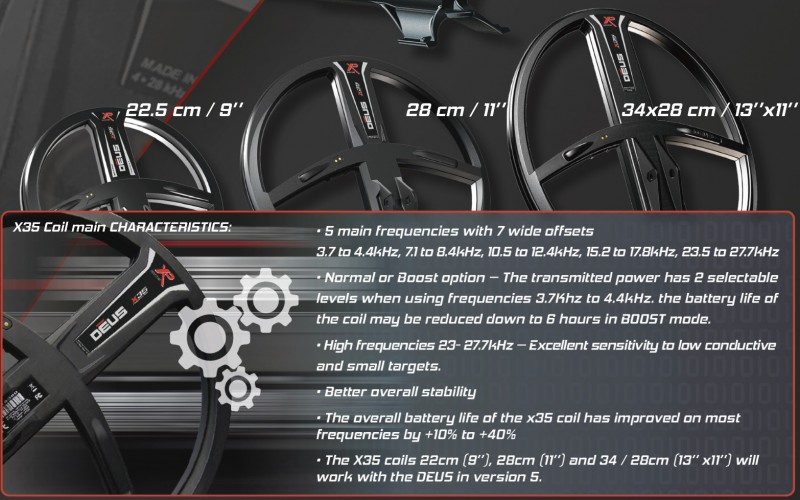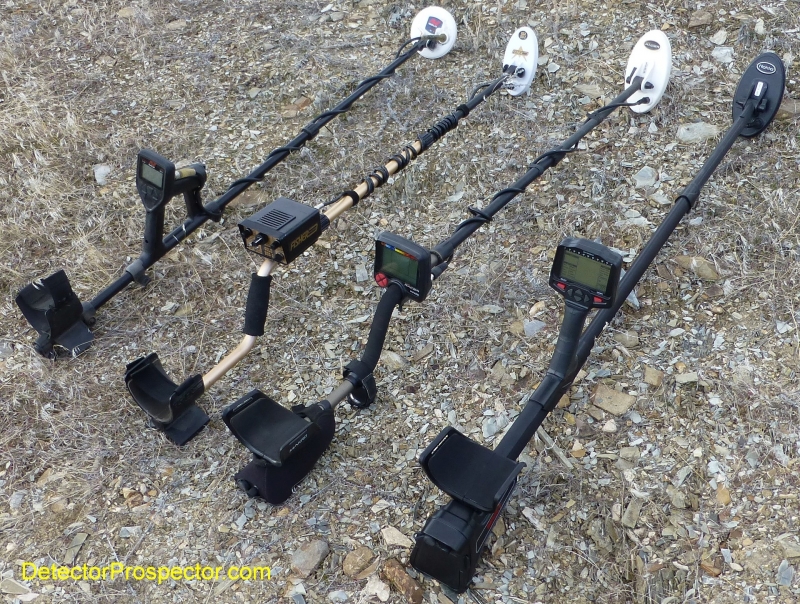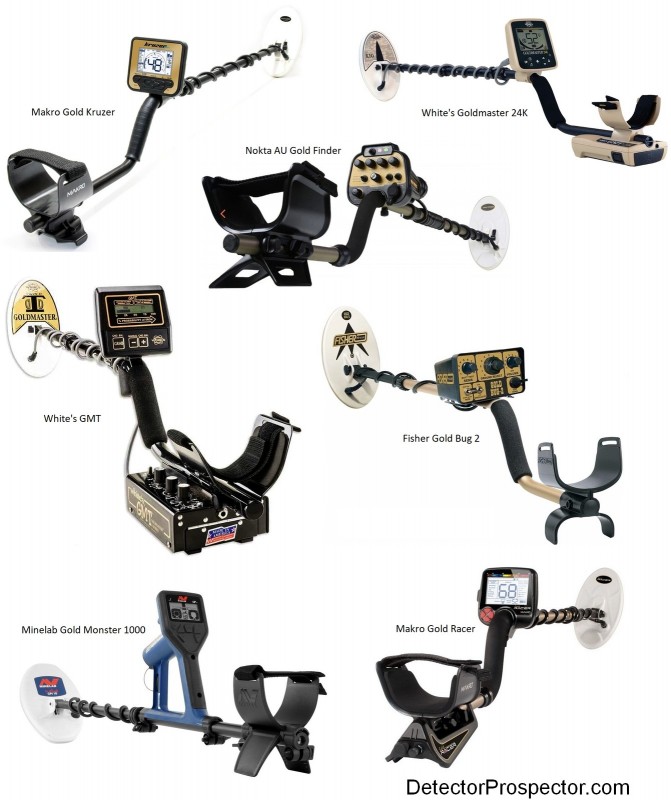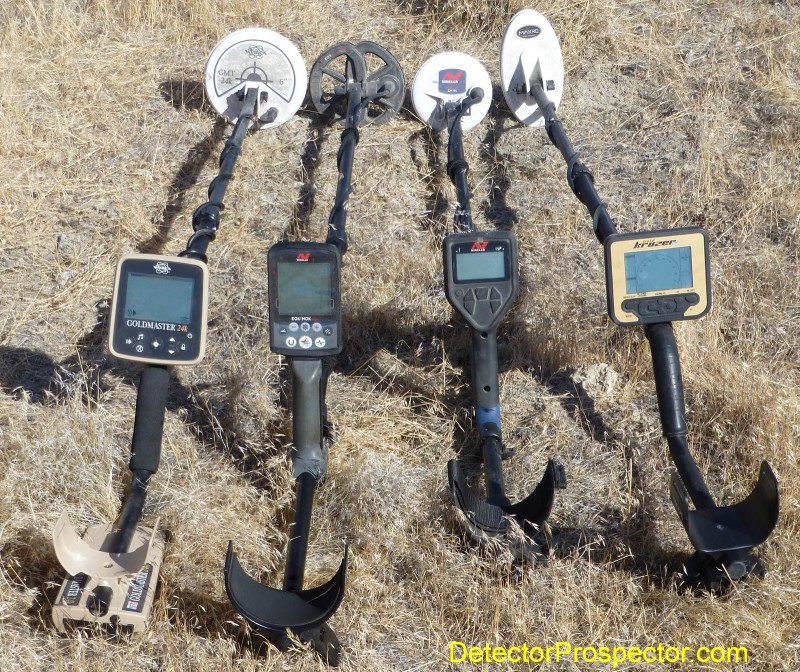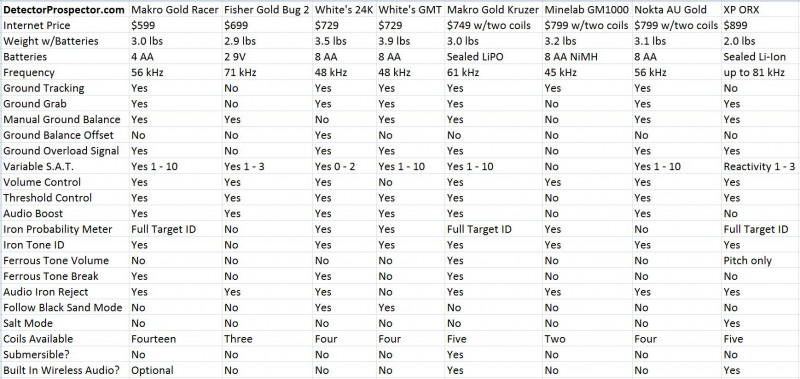-
Posts
19,726 -
Joined
-
Days Won
1,568
Content Type
Forums
Detector Prospector Home
Detector Database
Downloads
Everything posted by Steve Herschbach
-

I Really Like The Equinox :-)
Steve Herschbach replied to foreverteachable's topic in Minelab Equinox Forum
I am really liking the Equinox also. Although I still have a few other detectors it looks like the only two getting any real use by me this year are the GPZ 7000 and Equinox 800. And if I had to live without one of those it would be the GPZ 7000. I could use nothing but an Equinox 800 for the rest of my life and be relatively content. It's been a fun ride from 1972 White's Coinmaster 4 to Equinox 800 but I finally found one detector that does everything well enough to suit me at least in the "if I could only own just one" category. -
Nice showing of gold Peg - nice to see the “summer crew” like you back and posting also! Those little puffers do a far better job a recovering gold than I would have given them credit for. There certainly is a very good chance that more gold remains any place a detector has success that is too small / too deep to detect and a little rig that that could be just the ticket for many people.
-
Most good cell phone GPS mapping programs have an offline mode. Even Google maps. The GPS in a phone does not need a cell connection to work. The app merely needs the ability to download maps.The main problem with phone is battery life plummets if the GPS is on all the time. A battery back / case can solve that. When it comes to dedicated units I have had good luck with Garmin units myself. A basic Etrex can be had for under $100 For just buying a GPS unit it is hard to go wrong with a basic Garmin. However, if you ever think you might work much in tandem with somebody else, take a hard look at the Garmin Rino combination GPS and radio. It it fairly standard as a tracking GPS device. What makes it special is at any time you can hit a button and it will tell you exactly what direction and how far away your partner is. And you can of course talk to them. Very handy also for rough survey work, like claim staking and such. You can lay out distances just by having your partner walk off and by checking now and then know when they are 1000 or 2000 feet away. Mine are really old but still working fine. My most useful phone app is OnX Hunt which is a subscription service that maps private property. For creating basic tracks on my iPhone I have used MotionX GPS and been happy enough with it for that purpose. I also have Gaia GPS (Apple and Android) but have not really played with it yet. These days I use the GPS built into my GPZ 7000 for 95% of my GPS tracking. Lots of people speak highly of OziExplorer for PC and Android devices. Previous threads: GPS With Built In Camera? An Interesting Advance For Google Maps Backcountry Navigator Avoid Getting Lost
-
Here is a Facebook post showing some Montana nuggets found with the Gold Monster. Though lots of gold has been found in Montana with metal detectors you rarely see any of it posted.
-

How Much Gold Did They Actually Find?
Steve Herschbach replied to idahogold's topic in Detector Prospector Forum
Oroville is in gold country and the media really played up the gold finding aspects related to the causeway failure. I am doubtful many people are getting rich, but here is a little Oroville history. -
Makro has quietly released a third waterproof Kruzer model. First, there was the Makro Multi Kruzer, a selectable frequency detector that lets you choose between 5 kHz, 14 kHz, and 19 kHz for $749 with one coil. Next up was the Makro Gold Kruzer, a jewelry and gold nugget running at 61 kHz for $749 with two coils. And finally we get the Makro Kruzer, waterproof to 15 feet and running at a dedicated 14 khz, $649 with one coil. Available now at select dealers. For a savings of $100 compared to the Multi Kruzer it seems to me most people would spend the extra $100. This looks more like a way to match up closer in price with other 13 - 14 - 15 kHz single frequency detectors on the market. 14 khz has long been a proven frequency for a "do everything" metal detector model. The Makro Kruzer at 14 kHz, waterproof to 15 feet, built in rechargeable LiPo battery, firmware update capability, and included wireless headphones is an excellent all around value. I suspect the Gold Kruzer will be replacing the Makro Gold Racer eventually, and the 14 kHz Kruzer will likely replace the Makro Racer 2. 14 khz Makro Kruzer metal detector waterproof to 15 feet Makro Kruzer 14 khz specifications Official Makro Kruzer Page Makro Kruzer Color Brochure Makro Kruzer User Manual
-
So last year I am wandering around well off the beaten path in northern Nevada. I was targeting some old mapped prospects that turned out just to be natural features the mappers mistook for mining activity. Still, there is gold elsewhere in the area, and I am seeing lots of quartz scattered around. I wandered for miles swinging the Garrett ATX with one of the new 11" x 13" DD coils. This particular area had some hot rocks that were bugging my GPZ 7000 but which the Garrett tuned out entirely, so I went with the ATX. Garrett ATX in the Nevada desert Hours go by with not a single signal. Then I get this soft loud signal in the middle of nothing - no sign of human activity of any sort. It is strong but not a sharp signal, so I figure it is something large and deep. I start digging and it is deep. I am thinking maybe a meteorite? Or can I dare hope for a large nugget find - no, I tend to not let my thoughts go too far in that direction.... but still........ Close to two feet and this pops out of the ground: Looks to be an aircraft 20mm cannon round, probably WW2 era. I imagine somebody was flying around out there decades ago and fired off a round, which ended up punching into the ground where I found it. Who knows what the real story is, but it got my heart pumping and was the only find of the day.
-

New Deus X35 Search Coils
Steve Herschbach replied to Steve Herschbach's topic in XP Metal Detectors
Just wanted to highlight this. I would guess there is a pretty good chance the original black coils will be discontinued in favor of these new coils. Old black coils 4, 8, 12, 18 kHz (four main frequencies) New black coils 4, 8, 12, 16, 24 kHz (five main frequencies) -

Waterproof Connections & Sizes
Steve Herschbach replied to Steve Herschbach's topic in Minelab Equinox Forum
That would be the one on the end of the wired headphones that come with the Equinox 600. No adapter at all. There is the Minelab adapter available now at some dealers..... Connect 6.3mm (1/4-inch) headphones to your detector or WM 08 Module with this handy adaptor. The 3.5mm (1/8-inch) end forms a waterproof connection so that the cable can be submersed- note that the 6.3mm (1/4-inch) end is not waterproof. Part No. 3011-0369 $40.00 The Minelab adapter is designed to create a waterproof seal to the detector itself for wading. The cable is 24" long. It will also work with the WM08. Or as you noted a 1/8" male mono to 1/4" stereo converter will insure that most headphones will work properly. Otherwise you may get sound in only one ear. You can find these as a third party option and for less cost than the Minelab version, but the connection to the detector will not be waterproof. Way less money for above water use however at less than $10. The one pictured below has been reported as a working alternative and can be purchased online at Amazon for $6.99 delivered. -
First Texas (Bounty Hunter, Fisher, Teknetics) - last new models Fisher F75+ and Teknetics T2+. Next up a new pulse induction (PI) beach detector. A new digital multifrequency to replace the Fisher CZ3D is long overdue but at this rate we will be lucky to just see the PI before the end of the year. Garrett - last new model the AT Max. Hard to believe the flagship GTI 2500 has been around since 1999 with no updates. Garrett so far has shown no interest in multifrequency. The most I was hoping for was a lightweight dry land version of the ATX, but so far no sign of that happening either. I doubt we will see anything else from Garrett this year but they could surprise. Makro - last new models the Multi Kruzer and Gold Kruzer. Makro has mastered single frequency so everyone would like to see what they can do with multifrequency or pulse induction. I expect Makro is done with new models for the year. Minelab - last new models Equinox 600 and 800. I have no idea what’s up next for detectors but I sure would like to see that small coil for my GPZ 7000. I really don’t expect anything new for the rest of the year besides Equinox accessories. Nokta - sister company to Makro. Last new detector the Nokta Impact. Up next the Nokta Anfibio. Tesoro - Who? What? White’s - last new models the MX7 and TDI SL Special Edition plus the just announced Goldmaster 24K. Hopefully that new tech will eventually see the light. Right now just getting the 24K out the door is job one. XP - last new products the HF coils for the Deus, with X35 coils and XP Orx due by end of year.
-

New Deus X35 Search Coils
Steve Herschbach replied to Steve Herschbach's topic in XP Metal Detectors
Yeah, I got a Mac laptop, and was forced to set it up with Bootcamp to run Windows also just because of “Windows only” metal detector update software. -

Button ID Please
Steve Herschbach replied to foreverteachable's topic in Metal Detecting For Coins & Relics
Not much to go on there - needs somebody that knows buttons better than I. -
CTX leans high conductors / large targets (silver coins) and sparser trash. Equinox leans low conductor / small targets and deals better with dense trash. Either is superior at what it does best. Minelab E-trac, CTX 3030, Excalibur Versus Equinox Which is “best” depends on the primary usage since neither model is superior to the other in all ways. For me and my uses - I detect more for gold than for silver - the Equinox is the better detector. Somebody who really focuses on silver coins may find they prefer the CTX. I know some pros running the CTX with 17” coils in the UK, and their results cannot be argued with. That combo is a “treasure hog” The hard part to factor is weight (Equinox far less ) and cost (CTX far more) and whether the perceived advantage of the CTX for what it does best is worth the weight and cost penalty. For lots of people, Equinox is best at many things, and for the rest, it is “good enough”. Or at least that’s why I sold my CTX and now have two Equinox instead. I sure liked my CTX however. It is better behaved than the Equinox and I think it takes less expertise to master a CTX. There is room for both in the world, and the CTX will continue to be around for many years.
-
Best bet is to take that last question and post it as a new thread so our UK members will see it and respond. I have no idea what ground balance method works best in the U.K. I use auto (the pump method) with tracking off myself. Another note on large coils. My post you first reference is discussing using large coils to hunt trashy parks. The problem there is large coils increase the chances of multiple targets under the coil at one time. This in turn increases the risk of target masking (bad targets hiding good targets). Equinox has an advantage here versus the CTX for instance, because it’s much faster recovery speed can help fight the masking. The problem still exists however and due to masking alone I think getting “more depth” in dense trash is basically impossible with a larger coil. Again, counter intuitively, a small coil may see between the trash better and therefore punch deeper than the larger coil. Large VLF coils are best for wide open spaces with sparse targets like a huge beach or in your case, a huge farm field. And they can indeed get more depth on targets in milder ground, with the best increases being on larger targets.
-
I will take the extra depth if I can get it. It is just that I have learned that larger VLF coils do not add depth like large PI coils can except on the mildest of ground. If the ground is bad at all larger VLF coils “see” more ground and more trash. That in turn often means sensitivity must be reduced a little with larger coils. This trade is such that really large VLF coils really don’t work well at all compared to what you see on PI detectors. Also consider that when taking depth of elliptical versus round, using the smaller dimension gives a clearer picture of comparative depth. A 12” x 15” coil gives depth more comparable to a 12” round coil than a 15” round coil. You have taken a 12” coil and stretched it for more ground coverage. It is not like you squish a 15” round coil and retain all the depth. Manufacturers know you tend to focus on the larger number, so I fight that by putting the smaller number first - it is a 12” x 15” coil in my mind, not a 15” x 12” coil. Therefore when I look at an 11” round and a 12” x 15” coil my mind is comparing 11” to 12” and guess what - not a mile more depth but instead just a little more depth. In favorable conditions you might see a 10 - 15% depth edge on coin size targets going from a VLF stock coil to a “large” VLF coil. In poor ground depth may be about the same. In the worst ground, you may lose depth with a larger VLF coil! Long story short the reason I personally consider large coils is for better ground coverage with extra depth, if any, a bonus. That’s just how I look at large VLF coils. They have rarely proven to be the magic bullet I was hoping for and in fact usually screw up weight and balance more than they are worth on a VLF. Another way to explain it. I have almost always found a small coil to be a great investment that puts more finds in my pocket. Large VLF coils - not so much.
-

Future Manta And The White's TDI
Steve Herschbach replied to Mark Gillespie's topic in Metal Detector Advice & Comparisons
If the Manta simply equals the TDI for performance and is waterproof, then Fisher will have done what White’s has not. -
Welcome to the forum Julie. What types of metal detecting are you involved or interested in?
-

New Deus X35 Search Coils
Steve Herschbach replied to Steve Herschbach's topic in XP Metal Detectors
It seems like different high to low frequency spreads depending on if you are hunting high conductors/large items or low conductors/small items. Original frequency spread 4 kHz - 18 kHz favors high conductors 9” round HF coil 13 kHz - 59 kHz favors low conductors 9.5” elliptical HF coil 13 kHz - 81 kHz favors low conductors And now X35 coils 3.7 kHz - 27.7 kHz favors both high and low conductors Looks to me like the new X35 9” round will be “just right” for many people. -
I agree Simon - great observation. Many gold prospectors use a detector for prospecting and nothing else. That being the case it can make sense to have dedicated machines that focus on that one task. The vast majority of people however want to use a detector for more than one thing and so crossover models tend to be far more popular.
-
High Frequency Gold Nugget Detector Roundup Our cup runneth over! Just a few years ago the market for "over 30 kHz nugget detectors" was quite limited. For a long time there were only a few options: Fisher Gold Bug 2 (71 kHz) $764 with one coil Minelab Eureka Gold (6.4, 20, & 60 kHz) Discontinued $1049 when new with one coil White's GMZ (50 kHz) Discontinued $499 when new with one coil White's GMT (48 khz) $729 with one coil Things were that way for over a decade. Then in 2015 Makro introduced the Gold Racer (56 kHz) $599 with one coil. Sister company Nokta released the AU Gold Finder (56 kHz) $799 with two coils Then in 2017 we see the Minelab Gold Monster 1000 (45 khz) at $799 with two coils. And although not a dedicated nugget detector, the Deus high frequency coil options (up to 80 kHz) were also released, $1520 for complete detector with one HF coil. Now in 2018 we get another general purpose machine, the Equinox 800, that can hit 40 khz, $899 with one coil. And just announced... the Makro Gold Kruzer (61 kHz) $749 with two coils and the White's Goldmaster 24K (48 khz) $729 with one coil These last two announcements have made barely a ripple in the prospecting world, or at least going by other forums that seems to be the case. There are various reason for that (forums not being prospecting oriented or being Minelab centric) but still the lack of buzz is interesting. I do believe people are both burned out by all the new introductions and that the market is saturated with high frequency models. Leaving out the general purpose machines to sum up the current options it looks like the current "sweet spot" for pricing is a high frequency model at $749 with two coils. The Gold Bug 2 saw a price reduction to $699. Makro Gold Racer 56 kHz - $599 one coil Fisher Gold Bug 2 71 kHz - $699 one coil White's Goldmaster 24K 48 kHz - $729 one coil White's GMT 48 khz - $729 one coil Makro Gold Kruzer 61 kHz - $749 two coils Minelab Gold Monster 1000 45 kHz - $799 two coils Nokta AU Gold Finder 56 kHz - $799 two coils Added 1/2019 XP ORX up to 81 kHz - $899 one coil High frequency nugget detectors compared White's Goldmaster 24K, Minelab Equinox 800, Gold Monster 1000, Makro Gold Kruzer Minelab Gold Monster, Fisher Gold Bug 2, Makro Gold Racer, Nokta Impact
-
I never regretted selling a detector. There are a couple I regret buying however!
-

Minelab Equinox 800 Vs White's V3i
Steve Herschbach replied to johnedoe's topic in Metal Detector Advice & Comparisons
The V3i came out in 2009 and could have set the basis for the future. In 2009 we had a detector that could run three frequencies at once, or any one of the three separately. It incorporated wireless headphones. If effort had been made since 2009 to shrink the circuit, the MX Sport release could have been a VX Sport and history, as they say, would have been different.


